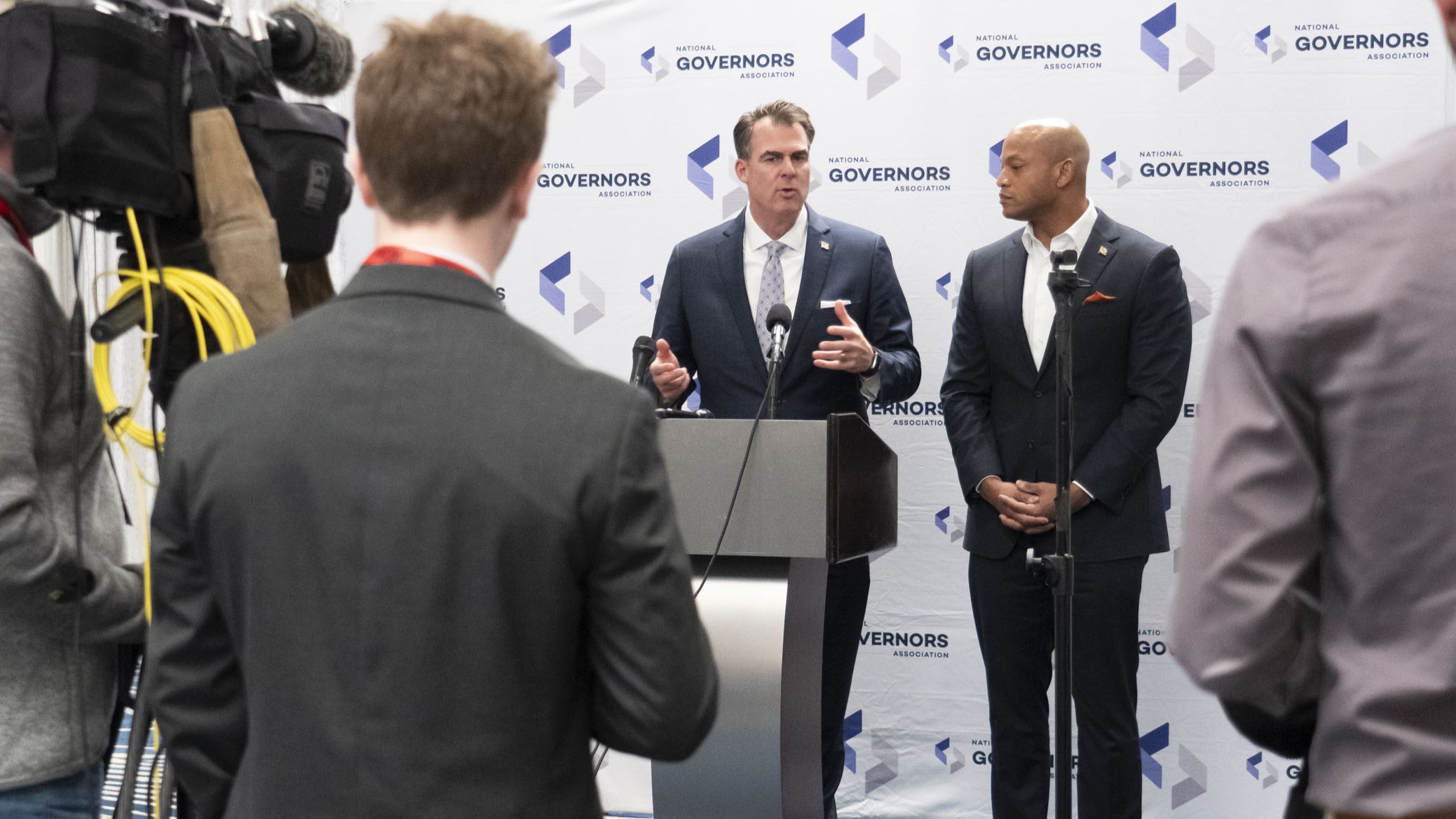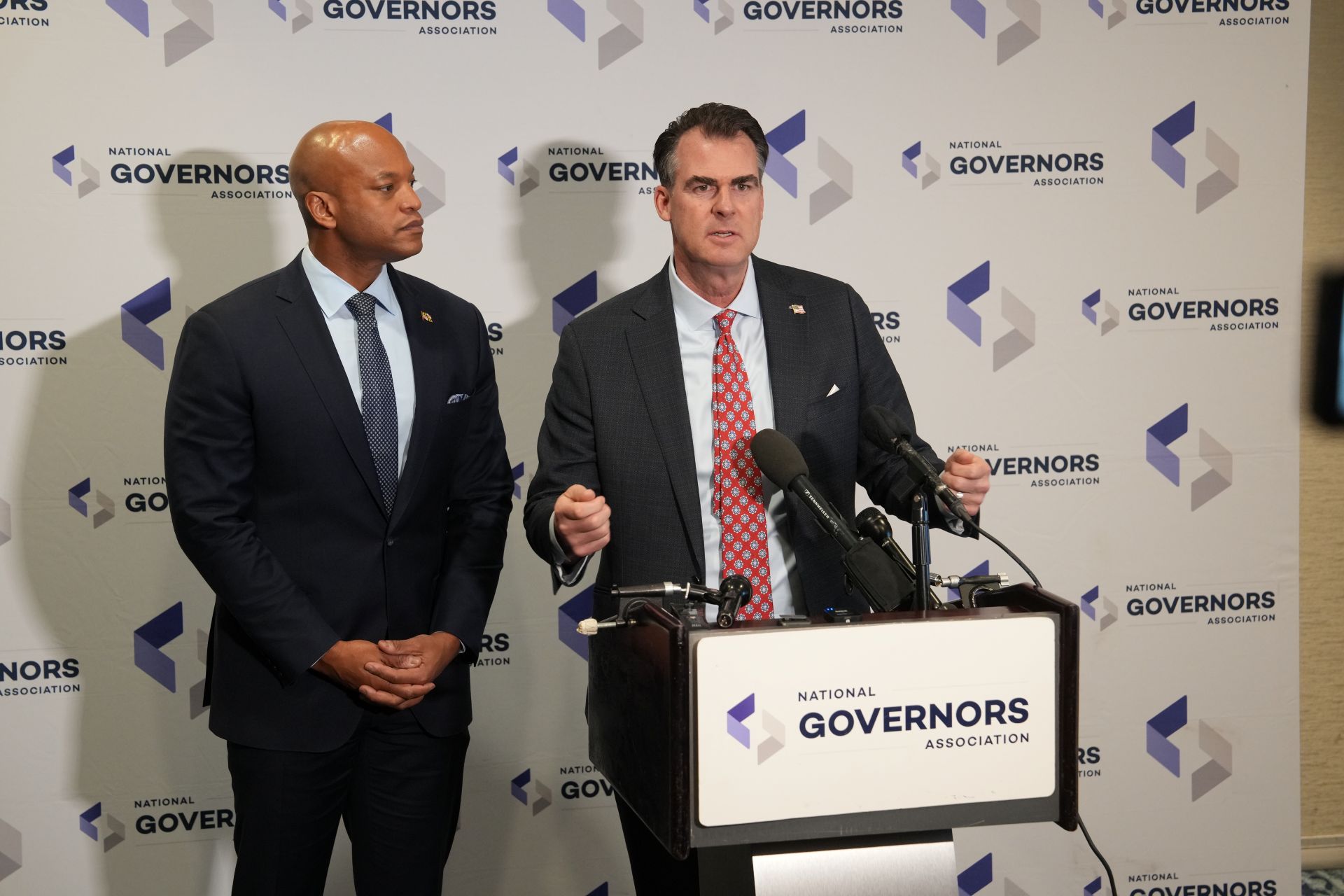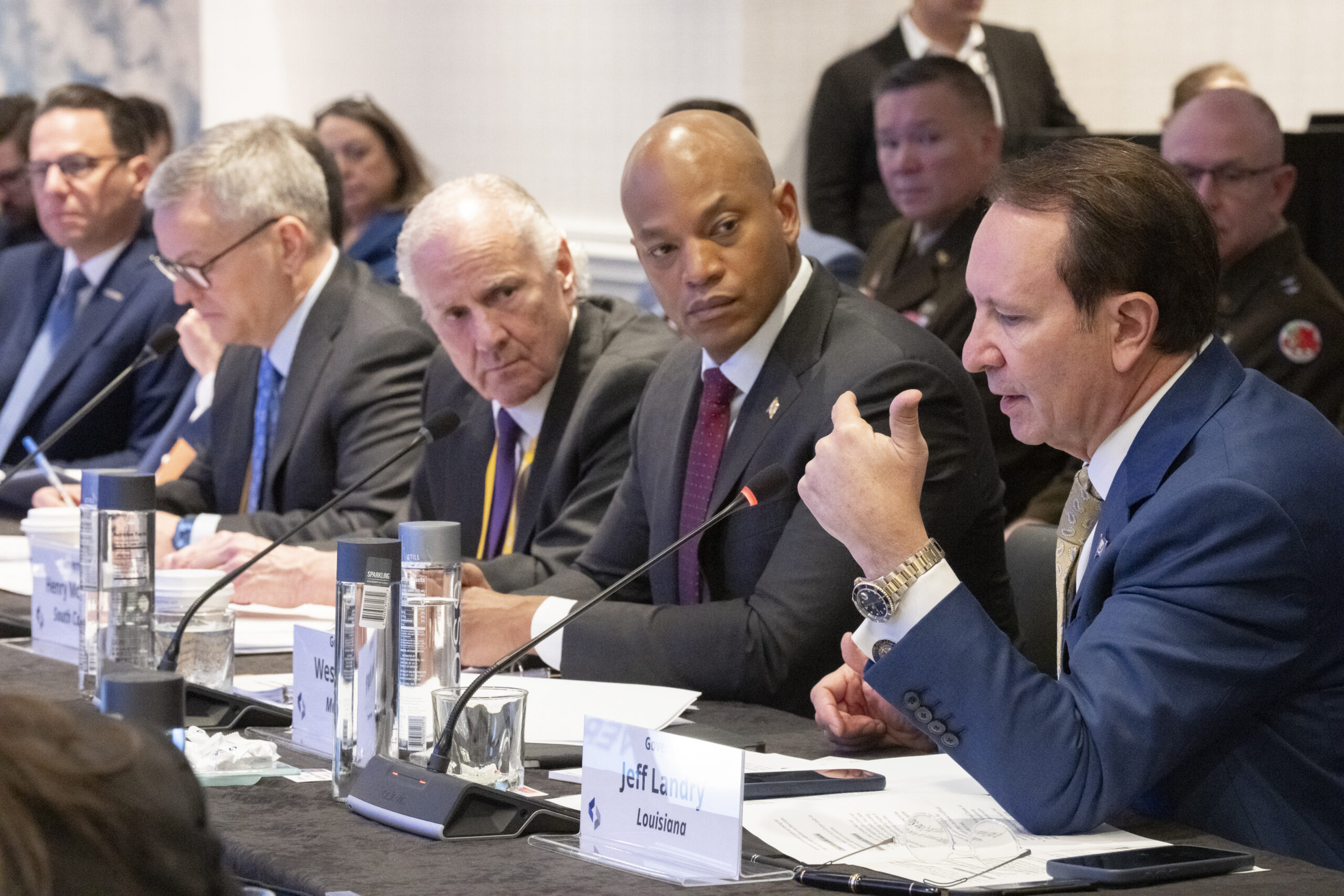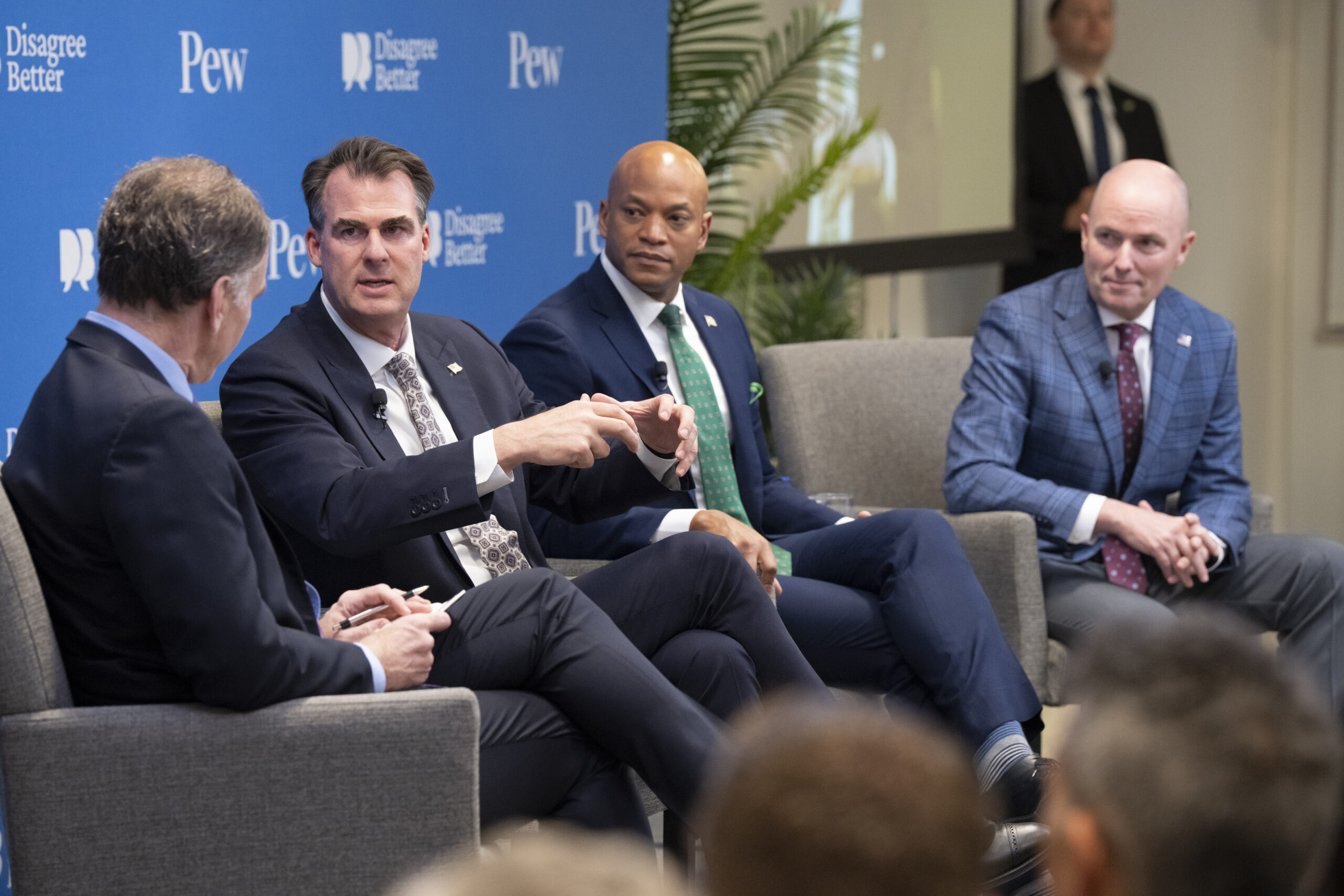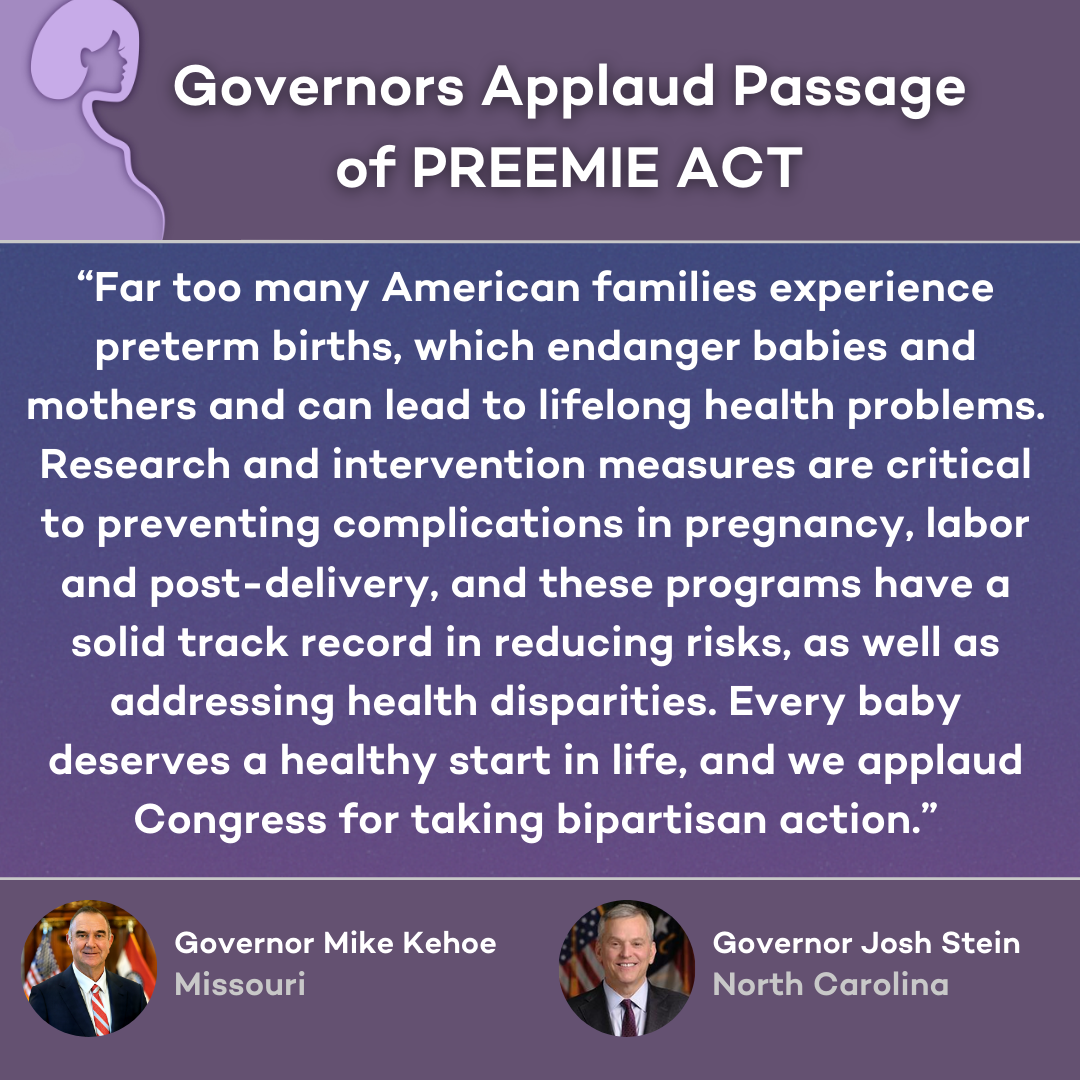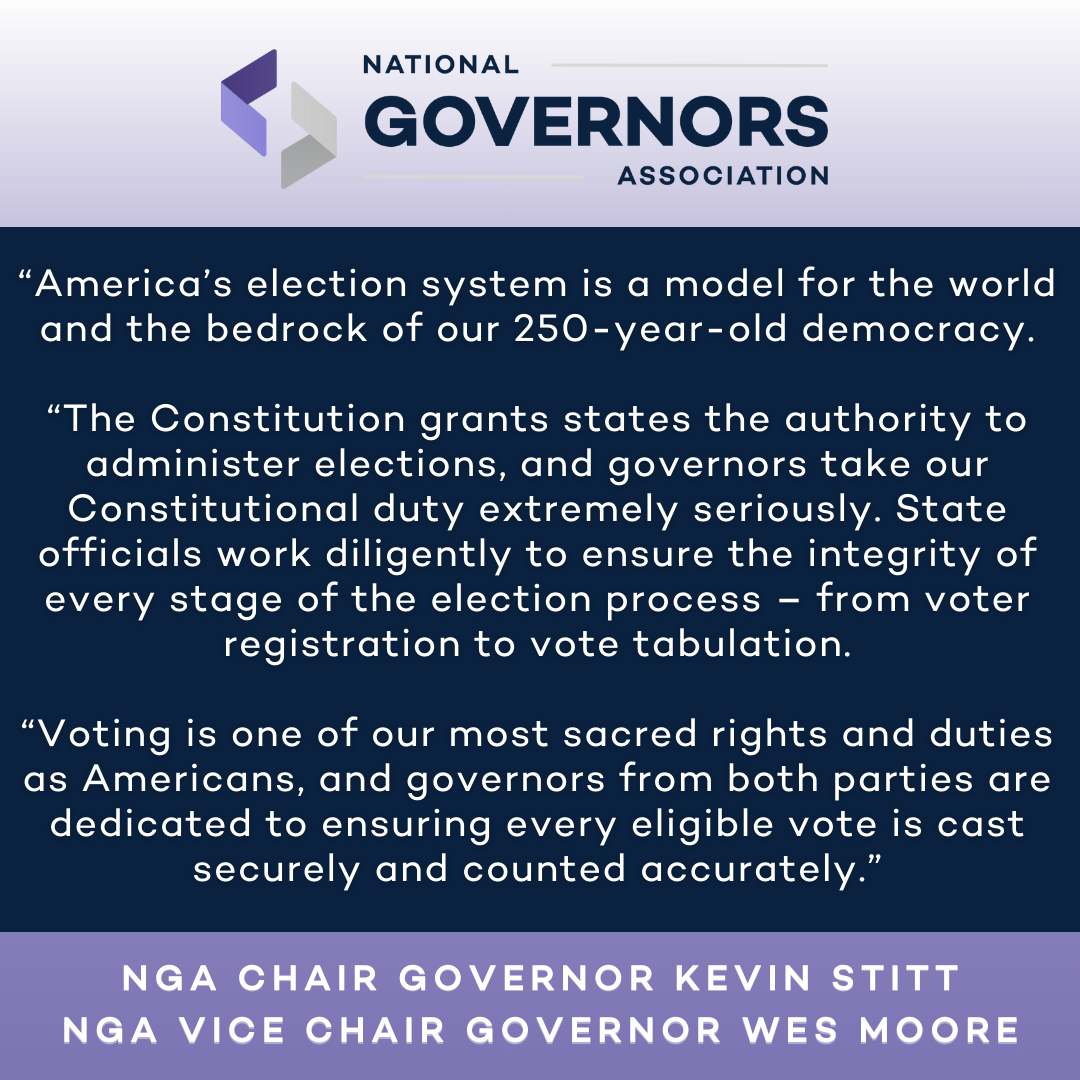The Honorable Mitch McConnell
Majority Leader
U.S. Senate
United States Capitol
Washington, D.C. 20510
The Honorable Paul Ryan
Speaker of the House
U.S. House of Representatives
United States Capitol
Washington, D.C. 20515
Minority Leader
U.S. Senate
United States Capitol
Washington, D.C. 20510
The Honorable Nancy Pelosi
Minority Leader
U.S. House of Representatives
United States Capitol
Washington, D.C. 20515
Dear Majority Leader McConnell, Minority Leader Schumer, Speaker Ryan, and Minority Leader Pelosi:
As Congress completes the fiscal year 2017 budget and begins work on the fiscal year 2018 budget, the nation’s governors call on the federal government to work collaboratively with states to ensure funding decisions do not impact federal program objectives.
As the chief executives of our states, we have experience balancing state budgets and allocating scarce resources. Federal funds make up an average of 31 percent of state budgets, making states’ ability to effectively administer these essential programs inextricably tied to the federal budget. While governors recognize that Congress has many funding challenges to meet, we urge you to uphold the federal government’s commitment to states. We strongly request meaningful consultation with states when considering any reduction or elimination of federal funding that will shift costs to states.
With this in mind, governors recommend the following principles for Congress when evaluating federal budgetary decisions affecting states to safeguard innovation, flexibility, and efficiency:
- Sufficient funds should be authorized and appropriated to meet program objectives. States are making tough budgetary decisions and applying innovative approaches to maintain critical programs for our citizens. But states cannot do this alone. Governors urge Congress to ensure the federal government upholds its commitment to critical programs.
- States should be given maximum flexibility to create efficiencies and achieve results. States must be allowed to align, transfer and coordinate funds from similar programs to produce a better return on investment. Federal mandates, even those that are paid for, often ignore state innovation or cost savings that can benefit both states and the federal government.
- Federal funding decisions should not shift costs to states by expanding unfunded or under-funded federal commitments. Good fiscal policy must consider the effects of federal action on state government to avoid actions that harm the ability of governors to manage state budgets.
Governors understand that a strong, cooperative relationship between the states and federal government is vital to best serve the interests of all citizens and recognize that federal fiscal stability is essential to the long-term strength of states and our country. Governors look forward to working collaboratively to address long-term fiscal and economic challenges, promote growth and long-term prosperity nationwide.
Sincerely,
Governor Terry McAuliffe
Chair
National Governors Association
Governor Brian Sandoval
Vice Chair
National Governors Association
cc:
House and Senate Budget Committees
House and Senate Appropriations Committees

